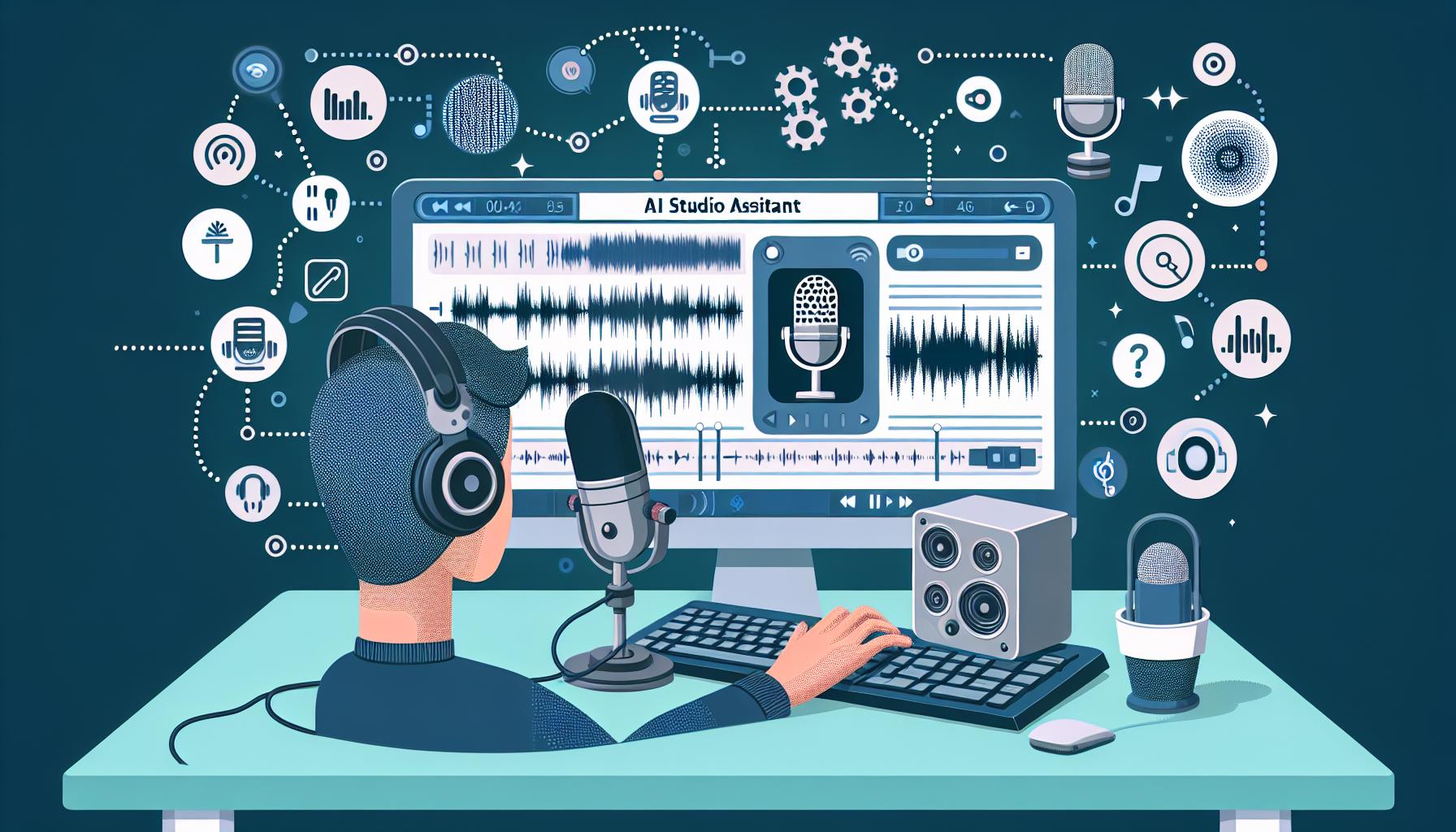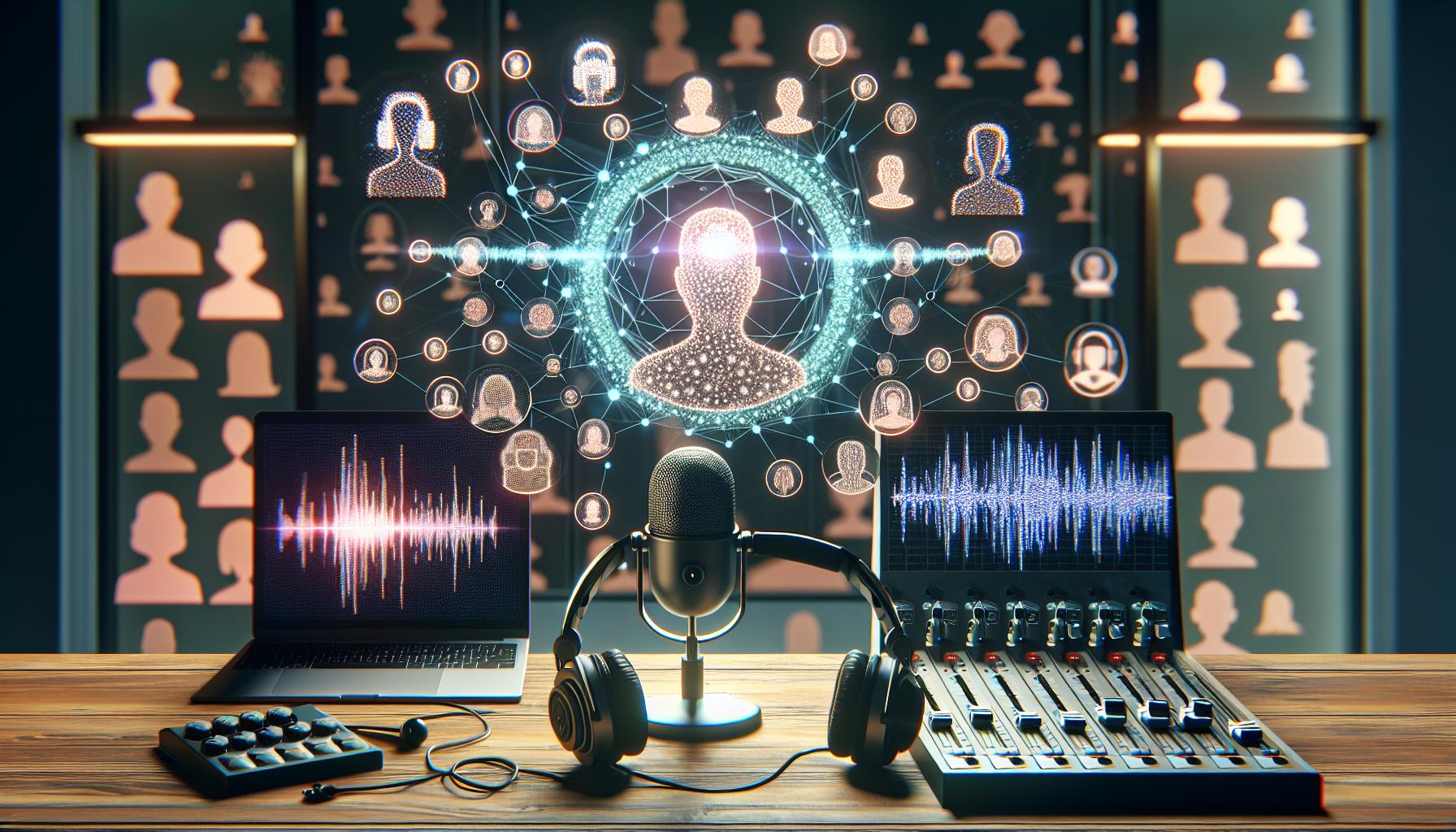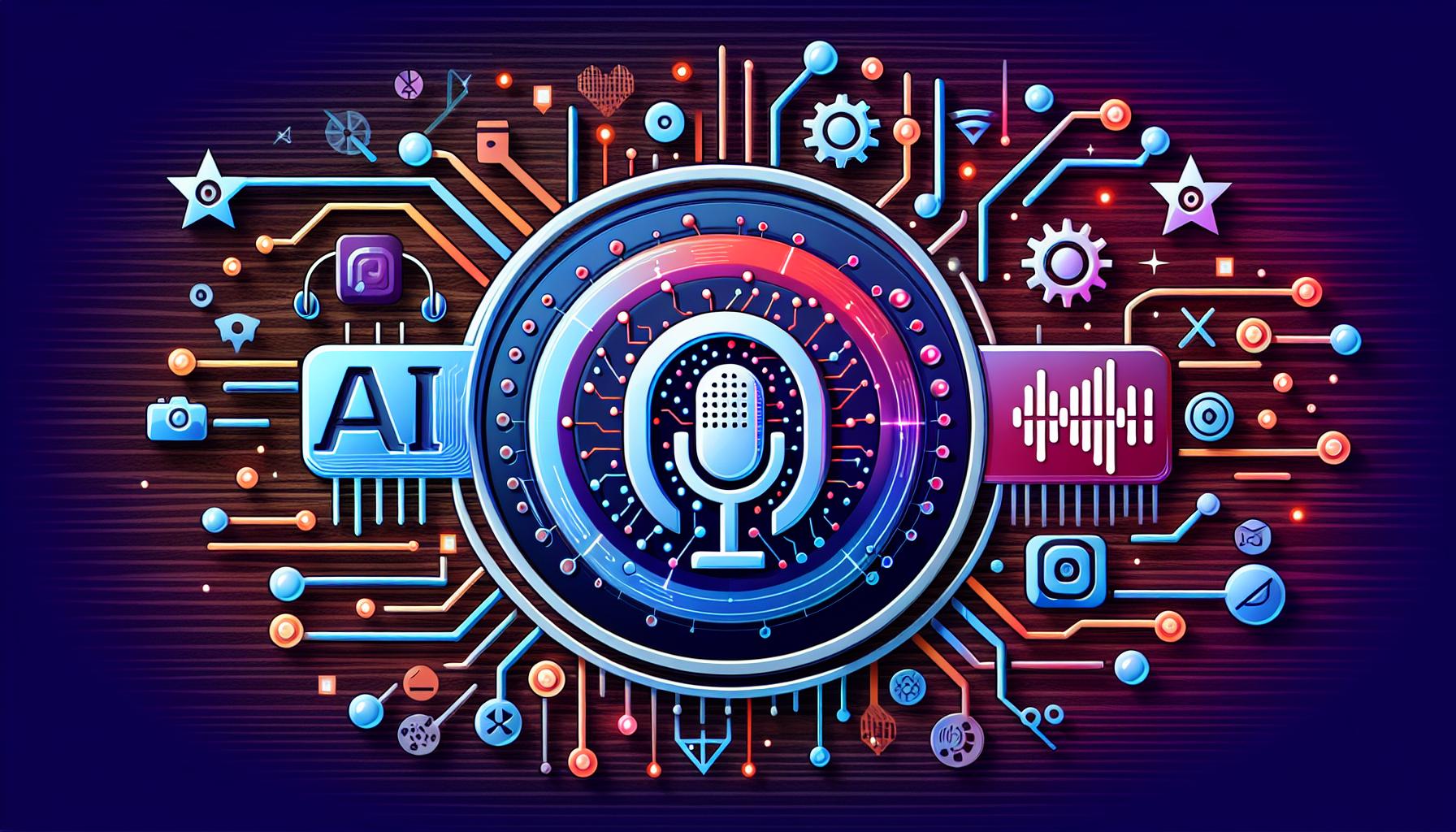Automating Podcast Production: The AI Studio Assistant

Introduction
The rise of podcasts as a popular medium for storytelling, education, and entertainment has led to an increased need for efficient production techniques. Enter Artificial Intelligence (AI), which is revolutionizing the podcast industry by automating technical tasks such as sound mixing, editing, and noise removal. This blog explores how A.I. is simplifying podcast production, making high-quality sound accessible to creators with varying levels of resources.
The Role of A.I. in Sound Mixing
One of the primary benefits of A.I. in podcast production is its ability to automatically adjust audio levels. Tools like Adobe Audition's ĎAuto Ducking' feature use A.I. to detect speech and automatically lower the volume of background music during dialogue, ensuring a balanced mix that highlights the speaker's words without manual input. This not only enhances the auditory experience but also significantly cuts down the time required for sound mixing.
Eradicating Background Noise
Background noise can be a major distraction from the content of the podcast. AI-driven software such as Izotope RX incorporates sophisticated algorithms to identify and eliminate unwanted sounds like traffic, air conditioning, or even keyboard typing sounds. This capability of A.I. not only ensures a crisper sound quality but also saves hours that would otherwise be spent manually cleaning up audio tracks.
AI-Driven Editing for Enhanced Flow and Clarity
Editing is another area where A.I. is making significant strides. Tools like Descript offer AI-based features that transcribe speech and allow producers to cut or rearrange audio tracks by simply editing the transcribed text. Moreover, some A.I. tools can analyze the entire podcast and suggest edits to improve flow and clarity. This ensures that the podcast not only sounds professional but also maintains an engaging narrative structure with minimal human intervention.
Case Studies: Enhancing Podcast Production with AI
Various popular podcasts have started integrating A.I. tools into their production process. For example, the podcast 'Tech Trends' utilized A.I. for sound balancing and noise reduction, resulting in a cleaner, more polished final product. Another podcast, 'History Unplugged', used A.I. transcription and editing tools to significantly reduce production time, allowing them to increase their episode output without sacrificing quality.
Conclusion
As A.I. continues to evolve, its integration into podcast production is transforming the industry. By automating complex, time-consuming tasks like sound mixing and editing, A.I. technologies enable podcast creators to focus more on content creation and audience engagement rather than technical challenges. With the ongoing advancements in AI, the future of podcast production looks brighter and more accessible than ever.




